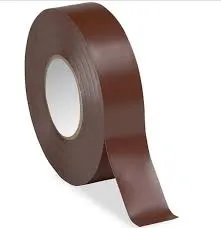The Importance of PVC in Electrical Insulation
Polyvinyl chloride (PVC) is one of the most widely used materials in the electrical insulation industry. Its unique properties make it an excellent choice for a variety of applications, ensuring safety and reliability in electrical installations. This article explores the benefits of PVC electrical insulation, its applications, and why it remains a preferred material in the industry.
Properties of PVC
PVC boasts several remarkable properties that contribute to its effectiveness as an electrical insulator. Firstly, it has a high dielectric strength, which means it can withstand significant voltage without conducting electricity. This quality is crucial in preventing electrical shorts and ensuring that electricity flows only where it's intended to. Additionally, PVC is resistant to moisture and chemicals, providing an extra layer of protection in various environments, such as industrial settings or areas prone to spills.
Another vital feature of PVC is its flame-retardant capabilities. It can self-extinguish when exposed to flame, significantly reducing the risk of fire hazards associated with electrical wiring. This characteristic is particularly important in residential and commercial buildings where safety is a prime concern.
Applications of PVC Electrical Insulation
The versatility of PVC allows it to be used in a multitude of electrical applications. It is commonly employed in the manufacturing of insulated wires and cables, which are essential components in nearly every electronic device and electrical system. PVC insulation helps to protect these wires from external factors such as water, heat, and mechanical stress, prolonging their lifespan and enhancing their performance.
pvc electrical insulation

In addition to wires, PVC is also used in the production of electrical connectors, switches, and other components that require insulation to prevent unwanted conductivity. Its adaptability allows manufacturers to mold it into various shapes and sizes, catering to the specific needs of different devices and installations.
Environmental Considerations
While PVC has been a cornerstone in electrical insulation for decades, its environmental impact has garnered attention. Manufacturers have begun exploring sustainable practices, including recycling and using alternative materials in production. Innovations such as lead-free PVC and additives that enhance recyclability are becoming more common, ensuring that PVC remains relevant in an increasingly eco-conscious world.
Conclusion
PVC electrical insulation continues to play a critical role in the safety and efficiency of electrical systems. Its excellent dielectric properties, chemical resistance, and flame-retardant features make it ideal for a wide range of applications. As the industry evolves, efforts to improve its environmental footprint will likely enhance its sustainability without compromising its effectiveness.
In summary, the enduring popularity of PVC in electrical insulation can be attributed to its numerous advantages and widespread availability. As we advance technologically, the reliance on reliable and effective materials like PVC will remain essential in ensuring that electrical systems operate safely and efficiently. Whether in residential wiring, commercial installations, or industrial applications, PVC insulation is a vital component in keeping our electrical infrastructure safe and effective.
-
XIANGFAN Rubber Tape-Ultimate Solutions for All Your Insulation NeedsNewsJun.24,2025
-
XIANGFAN Rubber Tape-Protection for Industrial and Residential ApplicationsNewsJun.24,2025
-
XIANGFAN Rubber Tape: Superior Safety and Sealing for Demanding EnvironmentsNewsJun.24,2025
-
XIANGFAN Rubber Tape: Reliable Solutions for Every Electrical ChallengeNewsJun.24,2025
-
XIANGFAN Electrical & Industrial Tape: Powering Reliability Across IndustriesNewsJun.24,2025
-
XIANGFAN Electrical & Industrial Tape: Excellence in Every ApplicationNewsJun.24,2025
